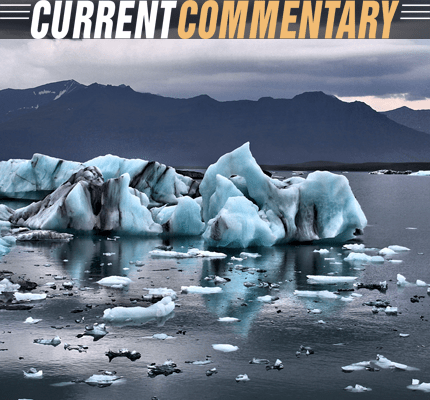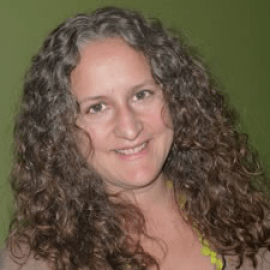
Gambling with the Paris Climate Accord Communicates the End of an Era
By Phaedra C. Pezzullo, Ph.D.
U.S. President Donald J. Trump has announced his intent to withdraw the United States from the Paris climate accord. Although not surprising, Trump’s audacity sent shockwaves across the nation and international borders. Notably, his speech reflects his identification with what Henry A. Giroux calls “casino capitalism,” an economic game that is rigged for the House (i.e., wealthiest) to profit, with long-term security traded for short-term thrills.
As a scholar of environmental rhetoric and policy, I was in Paris in 2015 as part of the COP21 International Environmental Communication Association delegation. While there, I wrote about my experiences of leaving my child as a reluctant climate advocate, the latent exigence of climate science (seemingly a crisis at some point in time, but never “now”), resilience and the cruel irony of climate change (more below), and a just transition for workers. People from all over the world arrived in Paris right after a terrorist attack, knowing a greater threat that was killing more people than terrorists needed to be addressed: climate change. Despite its imperfections, the agreement was enough to give the most cynical some hope. After 21 years of negotiations, nearly 200 countries had signed an agreement for climate action.

On June 1, 2017, Trump recklessly dismissed this careful policy negotiation. To open his statement, Trump acknowledged a terrorist attack in a casino resort in Manila. We may make two related observations: (1) he still imagines that terrorism outweighs climate science as a threat, despite the Pentagon’s report that states otherwise; and (2) he invites us to mourn for casino customers, while failing to mention recent white supremacist terrorist attacks on U.S. soil or other more substantial losses of human life (such as in Kabul, Afghanistan).
Trump’s declaration of an intent to withdraw from the accord also reflects his lack of empathy for people of color around the world, particularly those who are not wealthy. The “cruel irony” of climate change, as three-time former Sierra Club President Robbie Cox and I have written about, is that the people who are suffering the most from climate chaos will continue to be the people who have contributed the least to global greenhouse gases.
In his speech, Trump also affirmed the strong state of the U.S. economy, which we know cannot be due solely to actions taken just since January. He did not, however, acknowledge that withdrawing would be a job killer, or that the majority of businesses support staying in the relatively business-friendly, voluntary Paris Accord. (In fact, frontline communities wanted the Paris Accord to be more ambitious.) Instead, he cited a study by the National Economic Resource Associates, a known biased consulting firm on source watch lists, and a MIT study—both inaccurately. His inaccuracies were many, but in the American mind, logos (rational appeals) seems to move people less than appeals to pathos (emotional appeals) when it comes to climate.
Still, there is hope. States (such as California, New York, and Washington), cities, companies, and top CEOs already have begun making smarter, less vulnerable investments. Earlier this week, a shareholder action at ExxonMobil overruled the company’s Executive Board and declared that the company must fund an annual “stress test” to weigh the impacts of climate chaos (notably conducted since the launch of the #ExxonKnew campaign, documenting the company’s own scientific reports of climate warnings as early as the 1970s). Further, fossil fuel companies increasingly have been keeping distance from the kids suing the U.S. government in court. Trump’s declaration will not be the United States’ last word on climate.
Trump’s gamble, however, communicates high stakes for U.S. politics and economics. It signals the end of an era in which the United States aspired to act as a technological innovator in the global marketplace and as a leader in international diplomacy. The solar and wind industries will define the economic leaders of the next generation, as automobiles, space travel, and the internet did before. Without supporting renewable energy entrepreneurs, scientists, and, yes, workers in these industries, the United States will fall behind. The 21st century’s leaders will not be energized by 19th century fuel.
Although some may believe the ethnocentrism of U.S. exceptionalism may deserve to come to an end, the dilemma for the world is: What can happen without a leading cause of the problem helping with the solution?
Trump claimed to be representing the citizens of Pittsburgh, not Paris. Yet, the Paris Accord was not about the citizens of Paris or Pittsburgh or any other city—just as it was not about any one leader. The treaty was about the governments of the world uniting after decades of negotiation.
Insights from a Communication perspective are many, and this short commentary cannot be exhaustive. As Communication scholars have established already, the climate action story is intersectional, involving not only race, class, and jobs, but also reproductive justice, capital, the green public sphere, spectacles of crisis, limits, neoliberal discourse, what we believe to be truth, how to manage uncertainty, the value of imperfect acts of resistance, the role of art, how we might move beyond frames, science communication, and much, much more.
Climate change challenges our capacity to communicate with not just those who live under the same roof or even vote in the same elections, but with the world—human and nonhuman, currently alive and not yet born, across our differences. To respond to this crisis of withdrawal, we must learn how to articulate the value of life again, not just as a cheap, precarious casino bet against the odds, but as something worth saving. We need to develop more deeply our capacity to communicate what inspires, moves, and re-energizes us. The planet will continue to survive no matter how we act—it is our collective, interconnected fate that we must not leave to chance. Without linking crisis to care, we will be reduced to an ephemeral groan at the end of a spin of the roulette wheel, letting the temporary bright lights of a night out on town numb us once again from the world in which we need to live outside the casino walls.
References
- Carbaugh, D. (2014). Response essay: Environmental voices including dialogue with nature, within and beyond language. In J. Peeples & S. Depoe (Eds.), Voice and environmental communication (pp. 241-56). New York: Palgrave Macmillan.
- Carvalho A., & T. R. Peterson (eds.), 2012. Climate Change Politics: Communication and Public Engagement, Cambria Press: Amherst, NY.
- Cox, R. (2007). Nature’s crisis disciplines: Does environmental communication have an ethical duty? Environmental Communication, 1(1), 5-20. doi: http://dx.doi.org/10.1080/17524030701333948
- Cox, R. and P. C. Pezzullo. Environmental Communication and the Public Sphere, 4th Edition. Newbury Park, CA: Sage, 2016. (*next edition forthcoming November 2017 with updates due to Trump Administration and more current events)
- de Onís, K.M. (2012). “Looking both Ways”: Metaphor and the rhetorical alignment of
- intersectional climate justice and reproductive justice concerns. Environmental Communication: A Journal of Nature and Culture, 6(3), 308-27. http://dx.doi.org/10.1080/17524032.2012.690092
- Phaedra C. Pezzullo, “COMMENTARY: ‘Hello from the other side’: Popular Culture, Crisis, and Climate Activism,” Environmental Communication. 10.5-6 (2016, October). Available at: http://dx.doi.org/10.1080/17524032.2016.1209325 .
- Schneider, J., Schwarze, S., Bsumek, P.K., Peeples, J. (2016). Under Pressure: Coal Industry Rhetoric and Neoliberalism. Palgrave Macmillan.
Online Resources and Further Reading
- The International Environmental Communication Association Blog: https://theieca.org/blog-posts
- The journal of Environmental Communication: http://www.tandfonline.com/toc/renc20/current
- A University of Colorado Boulder creative climate communication center, Inside the Greenhouse: http://www.insidethegreenhouse.org/
- https://www2.ucar.edu/
- http://climatecommunication.yale.edu/
- https://www.climatechangecommunication.org/
- https://www.ourchildrenstrust.org/us/federal-lawsuit/
Media Resource: Issue Experts
- Gregg Walker, Oregon State University
- Jen Schneider, Boise State University
- Steve Schwarze, University of Montana
- Stacey Sowards, University of Texas at El Paso
- Tarla Rai Peterson, University of Texas at El Paso
- Stephen P. Depoe, University of Cincinnati


